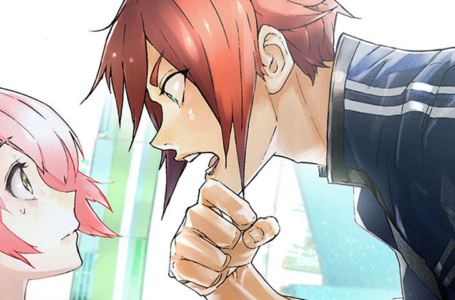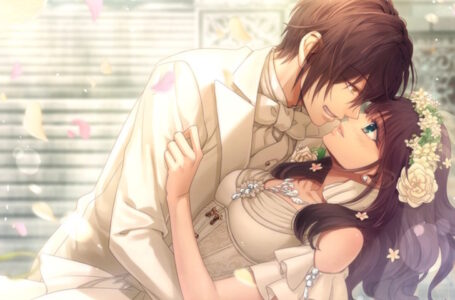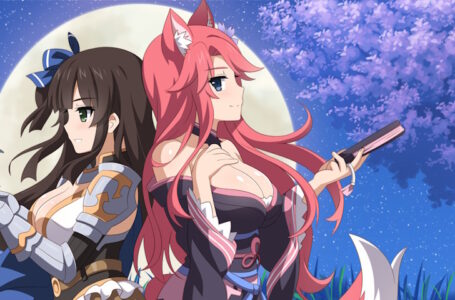Ecchi and erotic games are about more than just sexuality
Chances are, at least some of you reading this — if not most of you — have run into the more judgemental side of the Internet at one point or another. The side of the Internet that believes that videogames featuring provocative or even outright explicit sexual content are little more than pornography, with no redeeming cultural value whatsoever.
The poor quality of the discussions on this subject over the years has led many fans of ecchi and erotic games to take on a sort of self-deprecating persona, gladly embracing an identity as a self-professed “degenerate” or a “pervert”. While this has its humorous side, it does also have the unfortunate side-effect of making more in-depth conversations about this sort of material a little more difficult.
It doesn’t have to be this way. So let’s talk frankly about the enduring appeal of ecchi and erotic games — such as the titles on our recent 10 of the best sexy games on Nintendo Switch list — and why people have enjoyed them for so many years. Because the core reasons are much more complicated than simple tingly feelings in one’s swimsuit area.
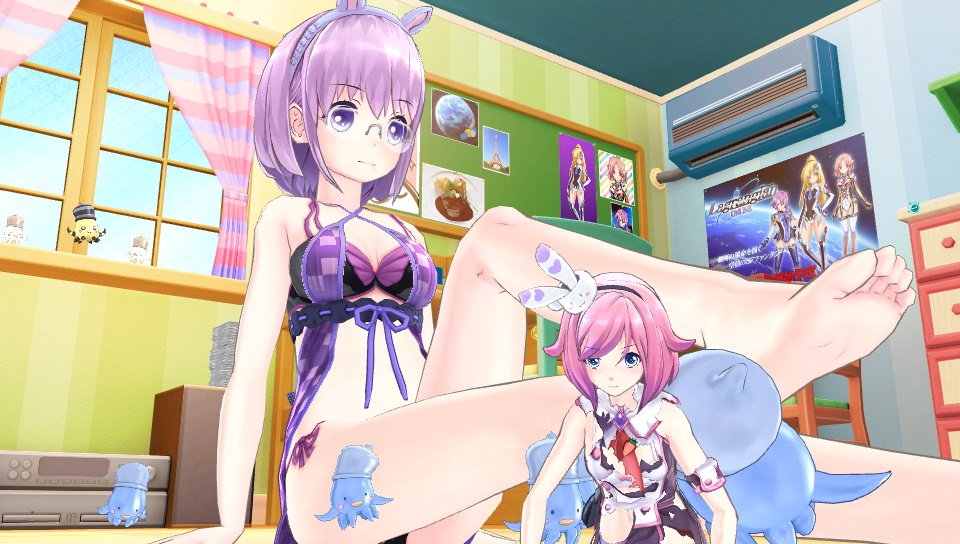
Let’s establish some definitions first, because there are distinctions worth making in this field. Firstly, when I talk about “ecchi” content, I’m referring to games that are what we’d call “lewd”, but without being sexually explicit. The sort of stuff you can buy and play on a console (well, let’s be honest, the Switch) right now. You might have panty flashes, you might have some cleavage, you might have some suggestive poses, but you won’t see either bare breasts or genitalia.
Secondly, the term “eroge” is typically used to describe games and visual novels that include explicit sexual content, but where that isn’t necessarily the primary focus. Good examples include the Grisaia series of visual novels, which features numerous sexual encounters between the protagonist and the various heroines, but where those encounters are not set up as a “reward”; they’re not the end goal of the game — rather, they’re a natural part of the depiction of an intimate, interpersonal relationship and how it progresses over time in both the emotional and physical aspects.
Thirdly, the term “nukige” refers to games and visual novels that are pretty much pornography. The sexual content is front and centre, and is the main reason you come to the game. Sexual scenes are often a “reward” for doing well at the game or completing a character’s route, and typically cater to specific fetishes — though it’s worth noting there’s nothing precluding an eroge from exploring these, either, nor is there anything preventing a nukige from having a decent narrative, either. The difference is the main focus of the experience: the sex, or the story.

We can cast nukige aside so far as our discussion today is concerned, because they are pretty much always entirely up-front with what they’re all about through both their title and their promotional artwork. You know what you’re getting into with a nukige; the explicit content won’t be a surprise. Well, the specific content might be, but its existence won’t be.
Ecchi games and eroge are a little more complex, though, because it’s seemingly easy for outsiders to make the assumption that there’s nothing more to these games than their provocative or explicit content. Without engaging with these works directly, you only have so much information to go on, after all, so on the one hand it’s perhaps understandable why certain people out there might make such assumptions; on the other, it’s unfortunate that these same people sometimes aren’t willing to open themselves up to interesting new experiences and see what they’re really about.
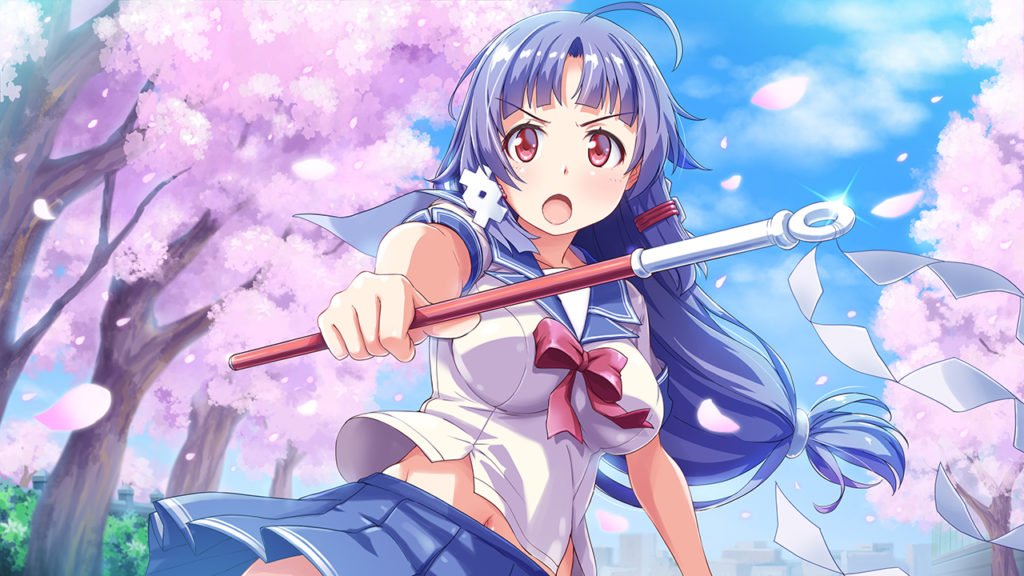
Let’s take something like the upcoming Gal*Gun Returns (which, don’t forget, you can preorder a lovely limited edition of from our store!) as an example. Gal*Gun is a series that has become notorious over the years as “the ecchi rail shooter where you shoot girls until they fall over in quasi-orgasmic ecstasy”. And to a certain extent, that much is true — but it’s also so much more than that. Gal*Gun is also a dating sim in which you manipulate your personal attributes in order to make yourself more appealing to various characters; Gal*Gun is also a visual novel in which each of the leading characters have their own stories to explore, many of which are highly relatable to a modern audience; Gal*Gun is also a mechanically interesting game from the same people who gave us, among other things, the Mega Man Zero, Blaster Master Zero and Azure Striker Gunvolt series.
These latter aspects tend not to get talked about a lot by those who don’t engage with the series directly; they work on assumptions and hearsay and leave it at that. And that’s a real shame, because in a lot of cases, ecchi and erotic games feature narrative and thematic content that a lot of online commentators have been crying out for for years now: representation of independently minded female characters from a variety of backgrounds; realistic depictions of relationships; exploration of mental health and societal issues; and all manner of other things. On top of all that, both the mechanics and thematic content in Gal*Gun have their roots in parts of gaming history that stretch right back to the ’80s — and even beyond in some cases.
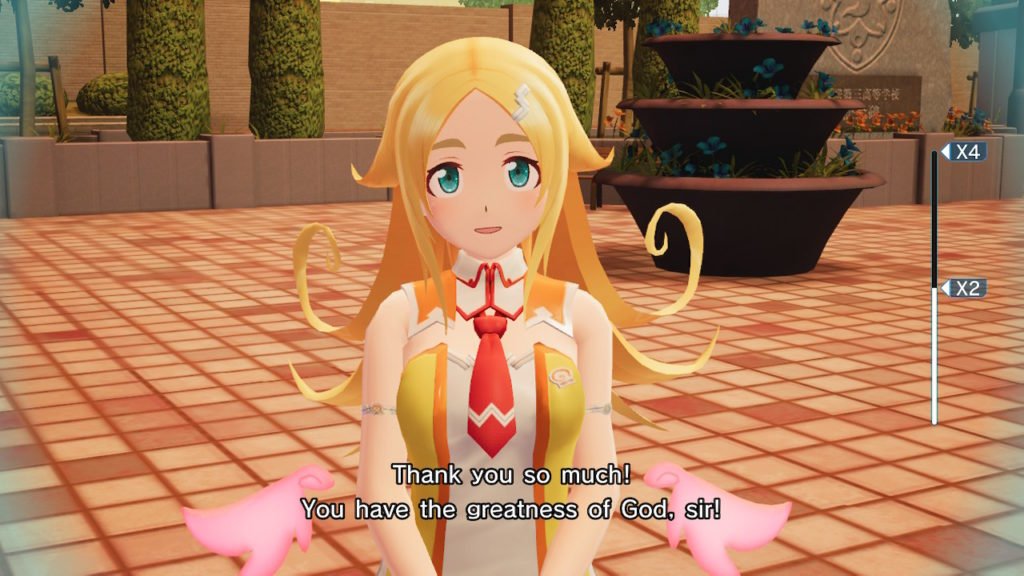
In Gal*Gun 2, for example, one of the main narrative threads concerns the player-protagonist’s relationship with their next-door neighbour Chiru, who has become a shut-in. Interestingly, Gal*Gun 2 doesn’t present Chiru’s situation as being something she should be ashamed of; rather, it shows her as making the best of her life and seemingly being quite comfortable the way she is, though through her developing relationship with the protagonist she starts to question a few things.
Reading more deeply into her mannerisms and way of life, one can even interpret her character as displaying some of the characteristics common to those on the autistic spectrum, particularly those with Asperger syndrome. There is, of course, an interesting explanation to all this, but I’ll leave you to discover that if you’re yet to enjoy Gal*Gun 2 for yourself. Suffice to say for now, though, that the series as a whole is — and has always been — about a whole lot more than lusting over cute girls, and is, in fact, a lot more intelligent than many people might assume. Those who have been playing visual novels and dating sims since the early days of home computers that were capable of displaying graphics will be well familiar with this sort of thing.
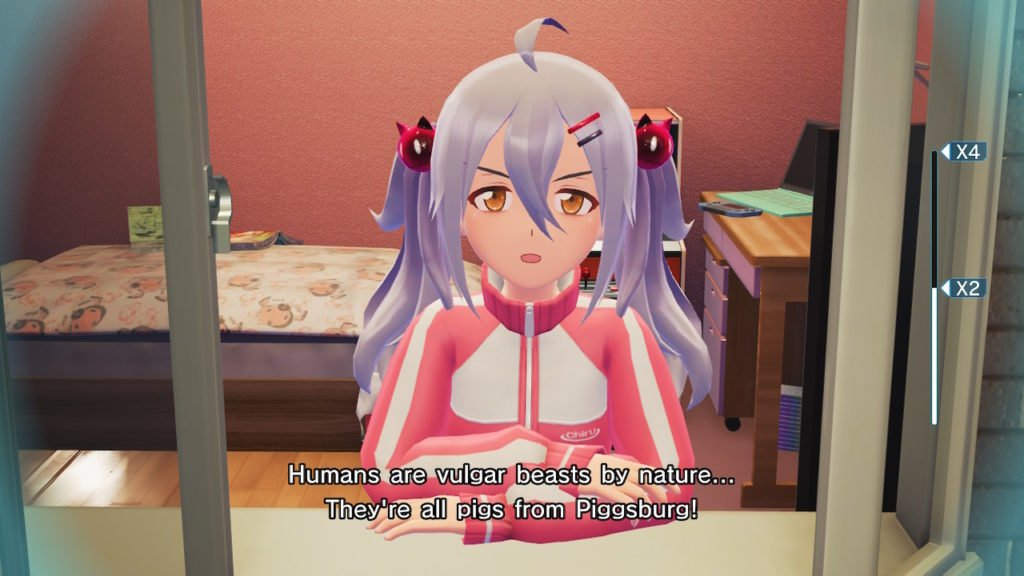
How about something more explicit, then? Well, let’s look at recent visual novel Nekopara vol. 4 as an example. The Nekopara series has always had 18+ content — though some might argue it became better-known thanks to the wider release of its toned-down ecchi all-ages incarnations — and it’s never held back from some rather messy depictions of intimate acts. (Artist Sayori clearly has plenty of her own preferences in that regard.)
There are plenty of reasons for this: the fact that close, intimate, romantic relationships with others inevitably become sexual in most cases; the fact that Nekopara’s world has an interesting and peculiar power dynamic where its catgirls are almost, but not quite, considered on a par with humans in terms of their place in society; and, thinking about things in more abstract terms, the fact that real-life pet ownership is a gloriously chaotic mess of physical (albeit not sexual) affection, emotional support and having to clean up various bodily fluids at inconvenient moments.
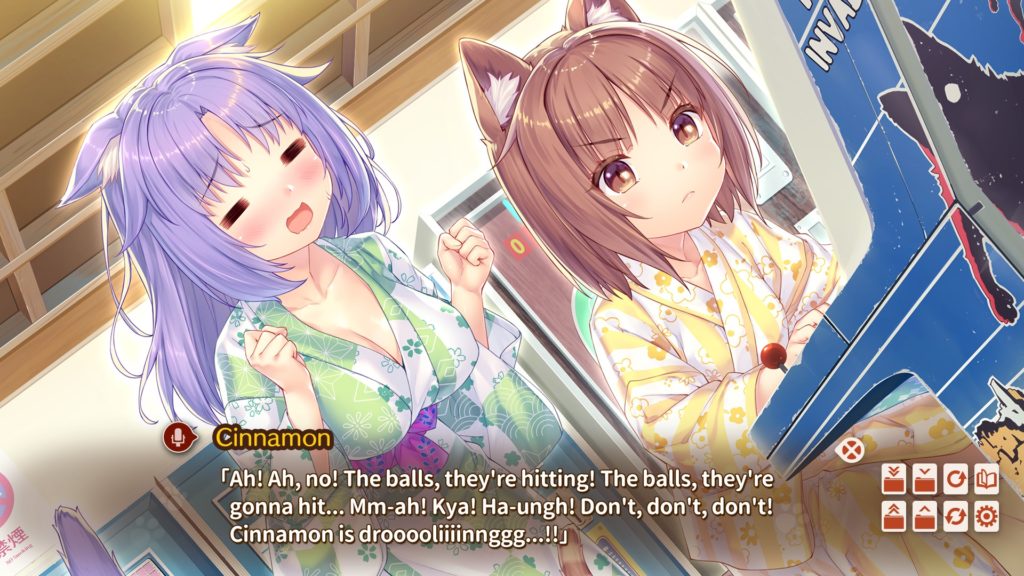
The fact that Nekopara chooses to depict the relationship between protagonist Kashou and his catgirls as sexual is not meant to imply that real people are out there abusing their pets, of course, but rather it exists as a natural extension of how the highly tactile, physical relationship between most pet owners and their pets might progress if that pet were actually human. If you own a pet — particularly a larger pet with a degree of autonomy such as a dog or cat — consider how physically affectionate you likely are with them on a fairly regular basis; now imagine being that intimate with a person and you can probably picture how things might escalate!
The sexual content of Nekopara, while worth acknowledging — particularly as the series originated as a series of erotic art pieces and comics — is a relatively minor part of the main point it’s trying to get across, though. Most people enjoying Nekopara are not doing so primarily to get to see naughty catgirl bits. Instead, they’re there to engage with the narrative, to find out more about the varied cast of catgirl characters, and to follow the ongoing story of Kashou’s efforts to run a successful Western-style patisserie in Japan. The latest installment, while featuring some romantic and sexual scenes, is not primarily about the relationship side of things at all; instead, it’s an episode that focuses on the protagonist’s efforts to secure the approval of his father, and perhaps figure out some of the things that have been bugging him at the back of his mind for many years at this point.
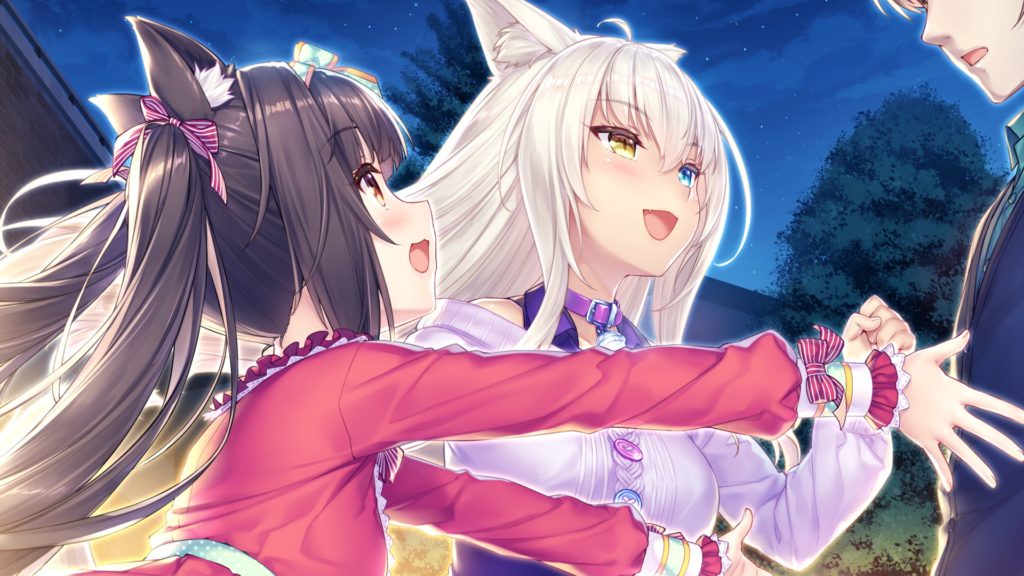
In all of the above cases, ecchi and sexuality is part of the appeal, and that shouldn’t be denied. The frankness and honesty with which that sexuality is presented in games like this can be refreshing; in a world where the simple acknowledgement of our baser, most natural desires often feels like it’s frowned upon, it’s important to have a place where you feel you can express yourself in this regard properly. But — and here’s the important bit — for the vast majority of people who enjoy this kind of thing, it’s never just about that.
I could cite many, many more examples — about how the Senran Kagura series has repeatedly demonstrated itself to have an admirably inclusive outlook on both self-acceptance and acceptance of others in both sexual and non-sexual matters; about how the aforementioned Grisaia series uses sexual scenes for some masterful characterisation; about how Gun Gun Pixies is about interpersonal relationships, honesty, body acceptance and not judging situations based on surface-level perception, but rather about looking more deeply into why things are the way they are — but I’ll refrain for now. Mostly.
Suffice to say that here at Rice Digital, we know why you play these games. Because that’s why we play them too! Never be ashamed of what you enjoy — or why you enjoy them. You’re among friends here.
Join The Discussion
Rice Digital Discord
Rice Digital Twitter
Rice Digital Facebook
Or write us a letter for the Rice Digital Friday Letters Page by clicking here!
Disclosure: Some links in this article may be affiliate links, which means we may earn a small commission if you make a purchase after clicking on them. This is at no additional cost to you and helps support Rice Digital!
- Letter from the Editor: passing the torch - June 30, 2023
- Super Woden GP 2 is looking promising - June 30, 2023
- Inti Creates is making a 32 bit-style Love Live action platformer - June 26, 2023




